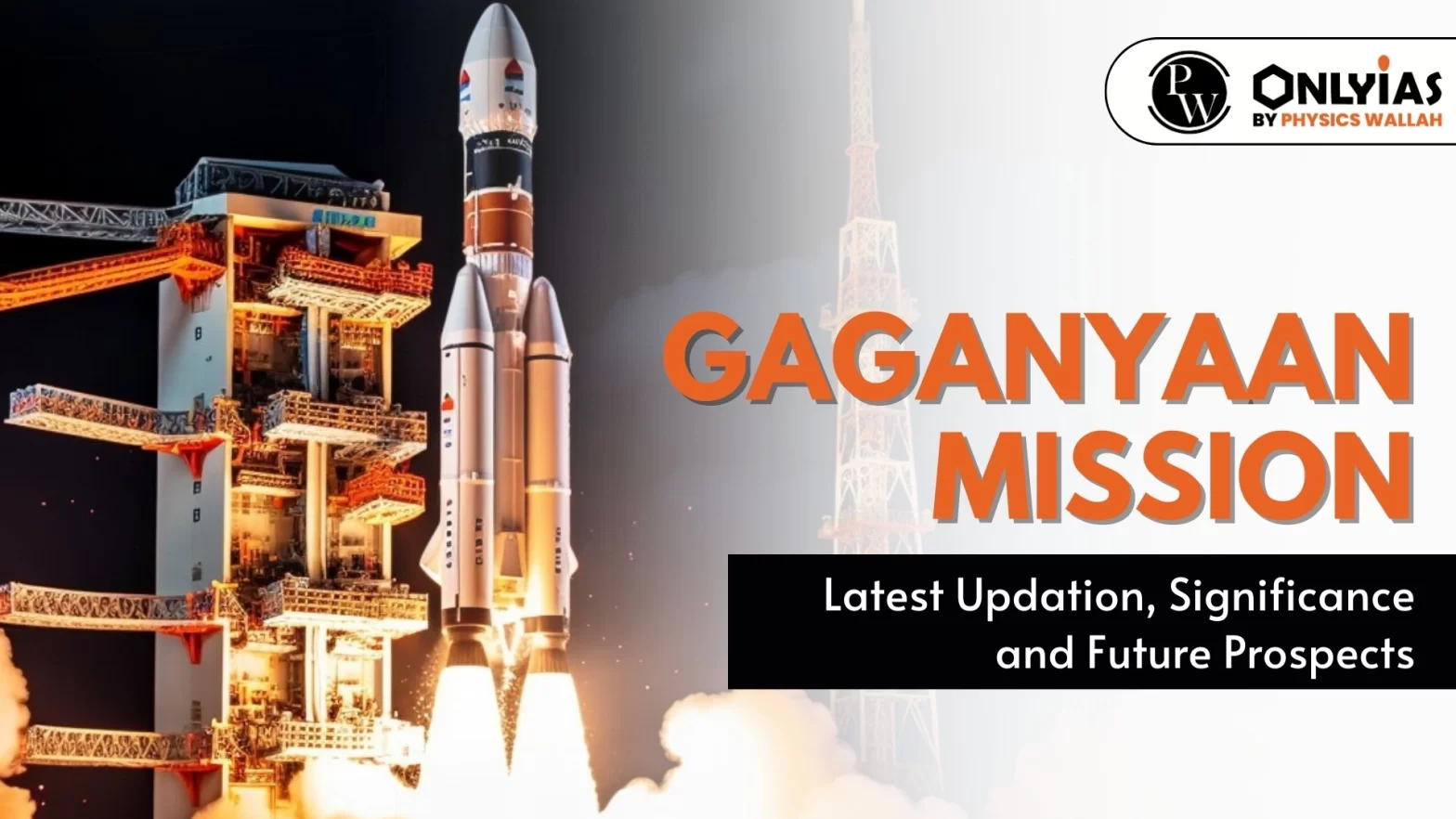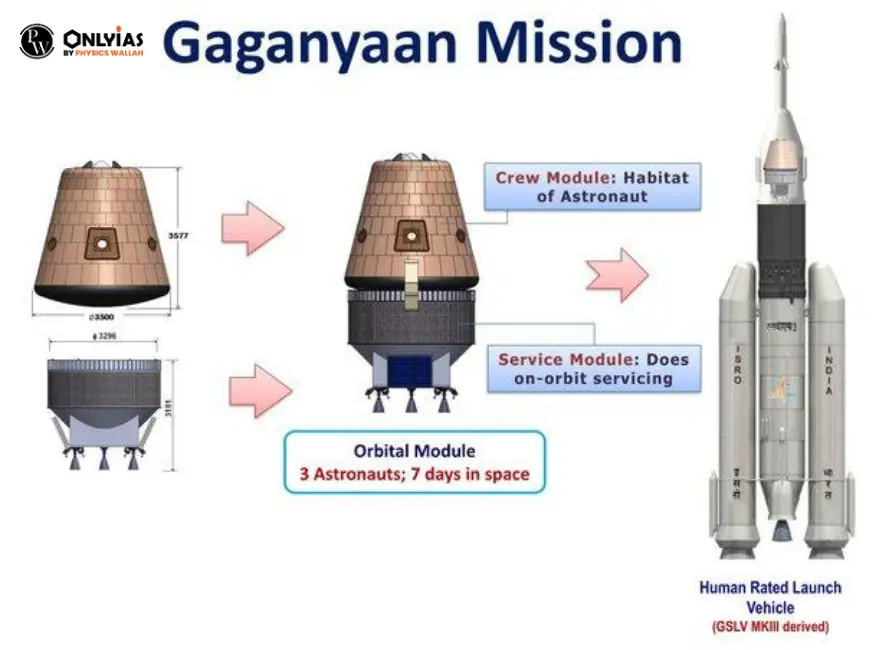India’s Gaganyaan Mission has been rescheduled to 2027 to prioritize rigorous safety measures and thorough astronaut training. Know more about Indian Space Research Organisation’s (ISRO) Gaganyaan Mission.

The Gaganyaan Mission is India’s first manned space mission, launched by the Indian Space Research Organisation (ISRO), aiming to send Indian astronauts (or vyomanauts) into space. This ambitious mission is a significant milestone in India’s space exploration journey, marking India’s entry into the elite group of countries capable of human spaceflight. The Prime Minister announced the names of the four astronauts who will fly to low-Earth orbit as part of the Indian Space Research Organisation’s (ISRO) Gaganyaan Mission. The mission focuses on advancing India’s capabilities in human space technology, astronaut training, and orbital safety, with plans for broader space exploration projects in the future.
Indian Prime Minister Narendra Modi unveiled the Gaganyaan mission in 2018, with an initial target of launching in 2022. However, the Indian Space Research Organisation (ISRO) subsequently revised the timeline—first to 2025, then 2026, and now to 2027—to ensure the highest safety standards and comprehensive astronaut training.
 Source: spaceanddefense.io
Source: spaceanddefense.io
The current plan includes three precursor test launches before the final crewed flight in 2027. Two of these will be uncrewed, while one will feature a humanoid robot to simulate human presence. ISRO is expected to conduct the first test flight later this year. This extended timeline allows ISRO to address mission-critical challenges, including rigorous testing of life support systems and refining all necessary safety protocols to ensure mission success.
The PM announced while visiting the Vikram Sarabhai Space Centre in Thiruvananthapuram, Kerala. It will be the first crewed Indian space mission. The four astronauts are:
They have been selected to be the astronauts on India’s first crewed mission to space.
Gaganyaan mission is a space mission to demonstrate ISRO’s human spaceflight capability by launching a human crew to an orbit of 400 km and bringing them safely back to earth.

Also Read – Recent Train Accident in India: Challenges and Pathways to Safer Rail Travel
Gaganyaan is a space mission to demonstrate ISRO's human spaceflight capability by launching a human crew to an orbit of 400 km and bringing them safely back to earth.
The mission will be launched from Satish Dhawan Space Centre, Sriharikota.
In the Crew Abort Test Mission, an unpressurised version of the crew module will be used. As part of the abort mission, the crew escape system and crew module will be separated from the test vehicle at an altitude of about 17 km.
GSLV Mk III, also known as LVM-3, will be used as a launch vehicle in Gaganyaan mission.
Orbital Module, Service Module and Crew Module will be used in the Gaganyaan Mission.
A humanoid robot known as Vyommitra is expected to be onboard the second uncrewed Gaganyaan mission.
The total cost of the Gaganyaan Programme is approximately Rs 9023 crore.
Astronauts will be safely escorted back to the Earth through a soft landing in Arabian Sea off the coast of Gujarat.
<div class="new-fform">
</div>